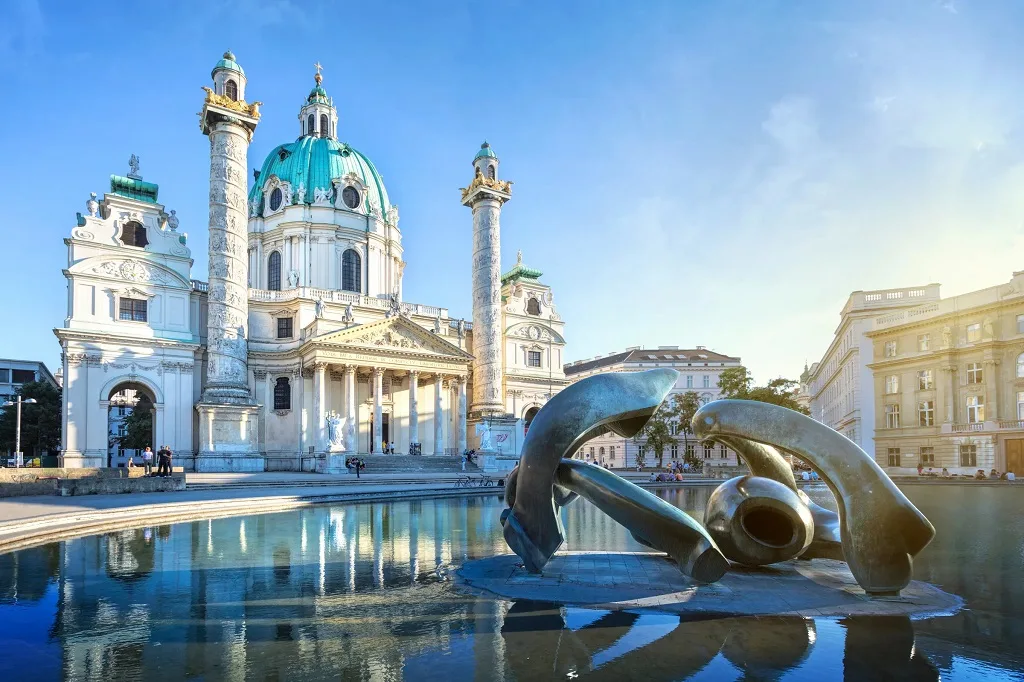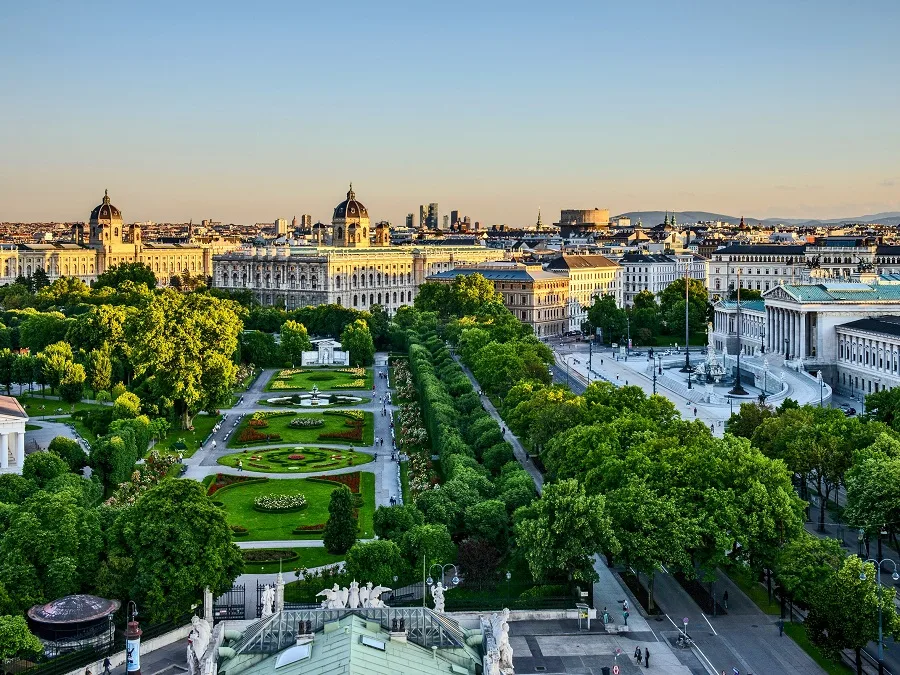
Vienna: A City of Cultural Marvels and Timeless Beauty
Vienna, Austria’s capital, offers an extraordinary blend of imperial traditions, stunning modern architecture, and a lively cultural scene. This city, known for its historical and musical heritage, is a place where past and present coexist in harmony. From the majestic Schönbrunn Palace to the innovative designs of the MuseumsQuartier, Vienna is a city that charms and surprises at every corner.
When and by whom it was founded
Tracing back to around 500 BC, Vienna was originally a Celtic settlement. In 15 BC, it was taken over by the Roman Empire and named Vindobona, serving as a military camp and guarding the empire against Germanic tribes. This strategic location laid the foundations of Vienna’s significance in European history, a legacy that continued through the centuries as it became the heart of the Habsburg Empire.
The city’s imperial past is evident in its grand architecture and the opulent Hofburg Imperial Palace. As the former residence of the Habsburg rulers, it now serves as the official seat of the Austrian President, symbolizing Vienna’s rich historical tapestry.
Which famous person was born in this city
Vienna has been the birthplace of many notable individuals, but perhaps none as influential as Ludwig van Beethoven. Though born in Germany, Beethoven moved to Vienna in his early 20s and spent the majority of his life in the city. Vienna was the backdrop to his greatest works and his profound impact on classical music.
The city’s vibrant musical scene shaped Beethoven’s revolutionary compositions, and today, Vienna continues to celebrate his legacy, with numerous venues like the Wiener Musikverein and the State Opera House, showcasing the works of Beethoven and his contemporaries.
Aside from Beethoven, Vienna was also home to Sigmund Freud, the father of psychoanalysis. Freud’s groundbreaking theories on the human psyche were developed in the heart of Vienna, where he spent most of his life.
Historical sights
Vienna’s historical sights are a testament to its imperial past and cultural richness. The Schönbrunn Palace, with its 1,441 rooms, stands as a symbol of the city’s grandeur. This Baroque masterpiece, together with its beautiful gardens, is a UNESCO World Heritage Site.
The Gothic St. Stephen’s Cathedral, another iconic landmark, towers over the city center. Its construction began in the 12th century, and it has since been a witness to Vienna’s evolving history.
The Belvedere Palace, with its impressive Baroque architecture and vast gardens, houses an extensive collection of Austrian art, including Gustav Klimt’s “The Kiss”.
The Hofburg Imperial Palace not only offers a glimpse into the lavish lifestyle of the Habsburgs but also houses the Spanish Riding School, where the traditional equestrian art of dressage is practiced.
For those interested in history, the Vienna State Opera offers a blend of cultural richness and architectural beauty. Opened in 1869, it has become one of the most important opera houses in the world.
About entertainment in the city and nightlife
Vienna’s nightlife offers a diverse range of options, from traditional coffee houses and wine taverns to modern clubs and bars. The city’s districts each offer their own unique vibe, with the Inner Stadt being the center of cultural activities and Leopoldstadt offering trendy bars and nightclubs.
The MuseumsQuartier is not only a place for art lovers but also a popular spot for nightlife, with its outdoor cafes and bars providing a lively atmosphere well into the night.

How to entertain yourself in this city
Entertainment in Vienna is multifaceted, ranging from classical music concerts and opera performances to modern art exhibitions. The city’s many festivals, such as the Vienna Jazz Festival and the Christmas markets, offer year-round entertainment.
Outdoor enthusiasts can enjoy the Prater, a large public park which features the Giant Ferris Wheel, offering stunning views of the city. The Danube Island is another great spot for recreational activities, from swimming to cycling.
Historical heritage
Vienna’s historical heritage is reflected in its preservation of tradition and culture. The city’s coffee houses, a part of Viennese lifestyle for centuries, are recognized by UNESCO for their cultural significance.
The traditional Viennese Ball season, with over 450 balls happening each year, continues to be a highlight of the city’s social calendar, attracting visitors from around the world.
Lastly, Vienna’s commitment to preserving its musical heritage is evident in the numerous institutions dedicated to classical music, including the House of Music and the Vienna Philharmonic, ensuring that the city’s artistic legacy continues to thrive.
